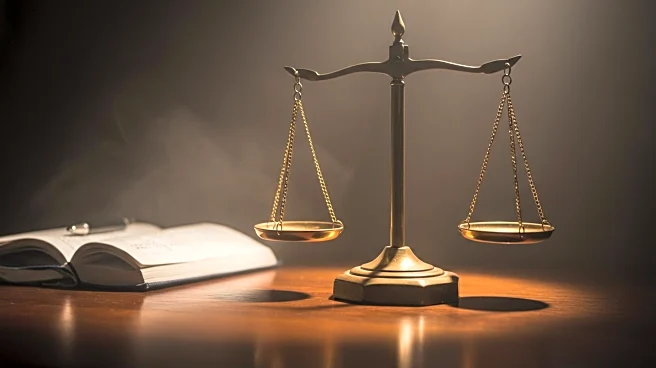What's Happening?
Over 10,000 South Korean citizens are preparing to file a lawsuit against former President Yoon Suk Yeol and his wife, Kim Keon Hee, alleging psychological harm due to the declaration of martial law on December 3, 2024. The lawsuit, set to be filed at the Seoul Central District Court, claims that the martial law declaration was a deliberate and unlawful act intended to violate citizens' basic rights. The plaintiffs are seeking damages of 100,000 won ($72) per person. The complaint accuses Yoon of using martial law to obstruct a special counsel investigation into Kim Keon Hee, which involved allegations of stock manipulation and luxury gift scandals. The plaintiffs argue that Kim Keon Hee actively participated in the alleged insurrection, making her a joint tortfeasor under civil law.
Why It's Important?
This lawsuit represents a significant legal challenge to the actions of a former South Korean president and his spouse, highlighting the potential misuse of emergency powers for personal gain. The case underscores the importance of accountability and transparency in governance, particularly concerning the use of martial law. If successful, the lawsuit could set a precedent for holding political leaders accountable for actions perceived as abuses of power. It also reflects broader societal concerns about the protection of civil rights and the integrity of legal processes in South Korea.
What's Next?
The Seoul Central District Court is expected to review the complaint and determine the next steps in the legal proceedings. Former President Yoon has already appealed a previous ruling in favor of 104 plaintiffs, which ordered him to pay damages. The outcome of this larger lawsuit could influence public opinion and political dynamics in South Korea, potentially affecting future elections and policy decisions. Stakeholders, including political leaders and civil society groups, may react to the case's developments, advocating for reforms or increased scrutiny of government actions.
Beyond the Headlines
The lawsuit raises ethical questions about the balance between national security measures and individual rights. It also highlights the potential for legal systems to address grievances related to political actions, offering a mechanism for citizens to seek redress. The case may prompt discussions on the limits of executive power and the role of the judiciary in safeguarding democratic principles.











